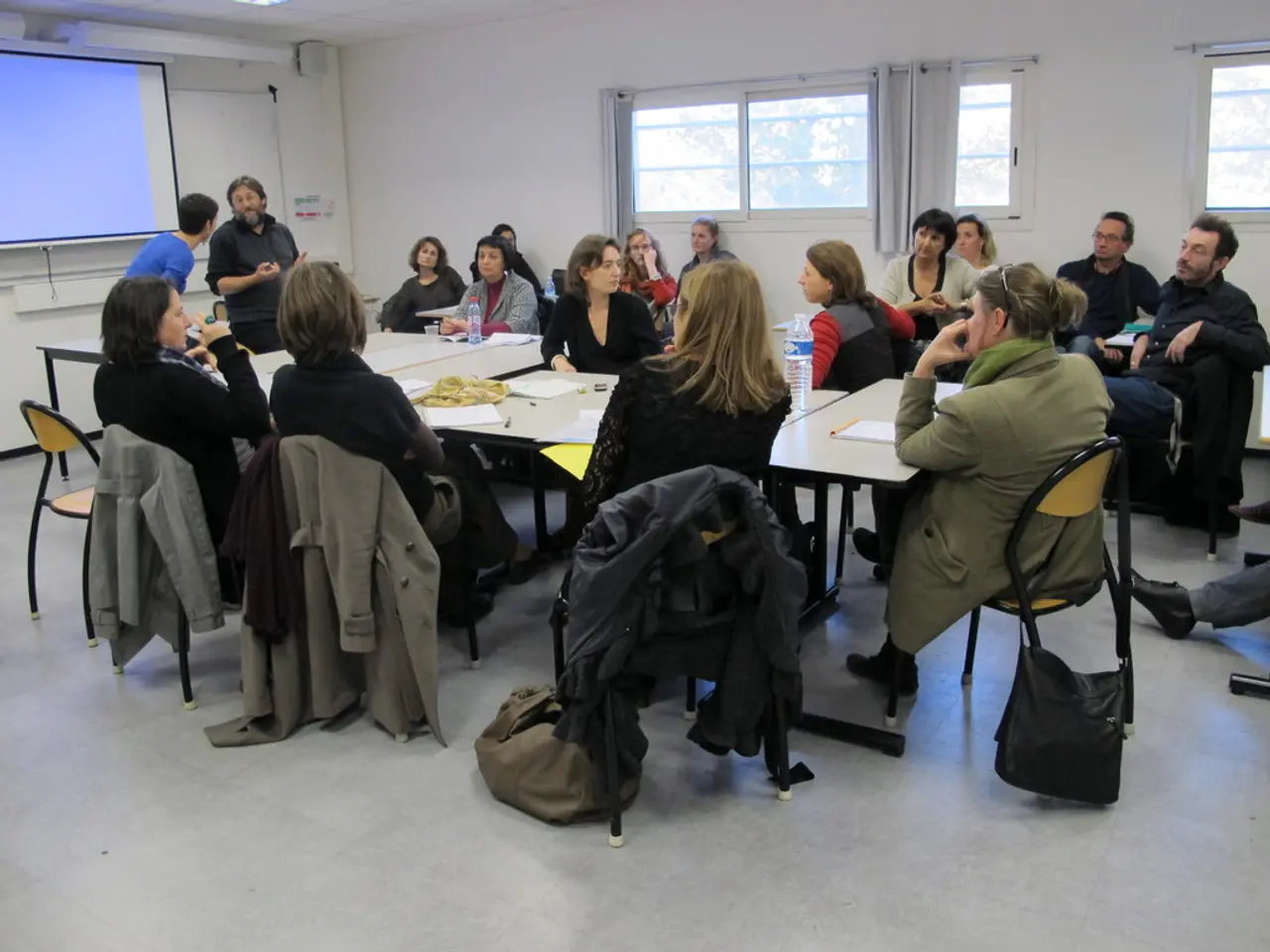BostonGene's Multimodal AI Platform Advent in Drug Development Showcased at the 2025 ASCO Annual Gathering
BostonGene Corporation, a pioneering company in the field of oncology, is making significant strides in the realm of precision medicine. At the upcoming 2025 ASCO Annual Meeting, taking place May 31 - June 3 at McCormick Place Convention Center in Chicago, IL, BostonGene will present six accepted abstracts showcasing their AI-driven platform's potential in revolutionising cancer treatment.
One of the studies, led by Lev Bedniagin, MD of BostonGene, focuses on non-small cell lung cancer (NSCLC). Leveraging BostonGene's AI-driven Kassandra deconvolution algorithm, the research explores tertiary lymphoid structures within the tumor microenvironment, which may serve as predictive and prognostic biomarkers for immune checkpoint inhibitor therapy.
Another study, in collaboration with MD Anderson Cancer Center, uses BostonGene's advanced analytic platform to delve into the complexities of invasive lobular carcinoma (ILC). The findings promise to shed light on unique histologic and molecular findings in ILC, potentially paving the way for more targeted therapies.
BostonGene's platform also demonstrates its versatility across various tumor types. A study by Nikita Kotlov, BostonGene, identifies distinct molecular patterns in various sarcoma subtypes that correlate with survival outcomes. Meanwhile, insights into tumor microenvironment subtypes in pancreatic ductal adenocarcinoma and the discovery of molecular subtypes of small-cell lung cancer (SCLC) are just two examples of how the platform is helping to refine patient stratification and predict therapeutic response.
Moreover, BostonGene's platform is contributing to oncology drug development by integrating multiomic data (genomics, transcriptomics, immunoprofiling) with artificial intelligence. This integration allows for the precise classification of tumor molecular subtypes and immune landscapes at the single-patient level, accelerating biomarker discovery and facilitating biomarker-driven clinical trial designs.
The six accepted abstracts by BostonGene at the 2025 ASCO Annual Meeting underscore the importance of precision medicine in managing cancer subtypes that are resistant to traditional interventions. For more information, please visit the 2025 ASCO Annual Meeting website. BostonGene will exhibit at booth #15147.
The 2025 ASCO Annual Meeting abstracts will be published online in the Journal of Clinical Oncology supplement for the ASCO Annual Meeting Proceedings. The meeting promises to be a significant event in the advancement of precision oncology, with BostonGene playing a key role in driving these developments.
- Cloud technology is being utilized by BostonGene Corporation as they present six abstracts at the 2025 ASCO Annual Meeting, showcasing their AI-driven platform's potential in revolutionizing cancer treatment.
- The research led by Lev Bedniagin, MD of BostonGene, focuses on non-small cell lung cancer (NSCLC) and leverages the company's AI-driven Kassandra deconvolution algorithm to explore tertiary lymphoid structures within the tumor microenvironment, which may serve as predictive and prognostic biomarkers for immune checkpoint inhibitor therapy.
- BostonGene's versatile platform is also contributing to oncology drug development by integrating multiomic data (genomics, transcriptomics, immunoprofiling) with artificial intelligence, which allows for the precise classification of tumor molecular subtypes and immune landscapes at the single-patient level.
- The 2025 ASCO Annual Meeting underscores the importance of precision medicine in managing cancer subtypes that are resistant to traditional interventions, with findings from the accepted abstracts by BostonGene shedding light on potential advancements in health-and-wellness, medical-conditions like cancer, and the application of technology like artificial-intelligence in science.




